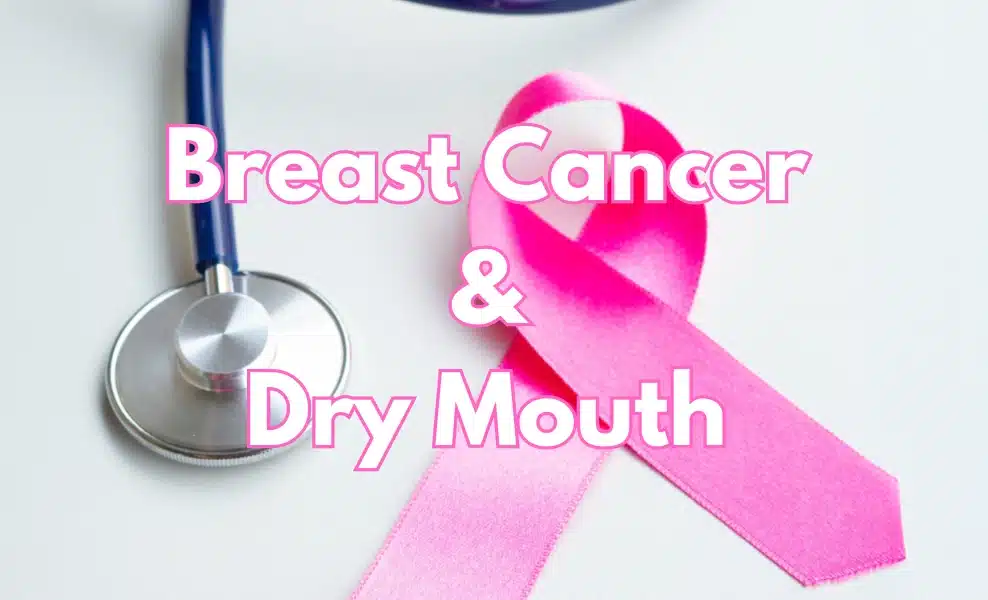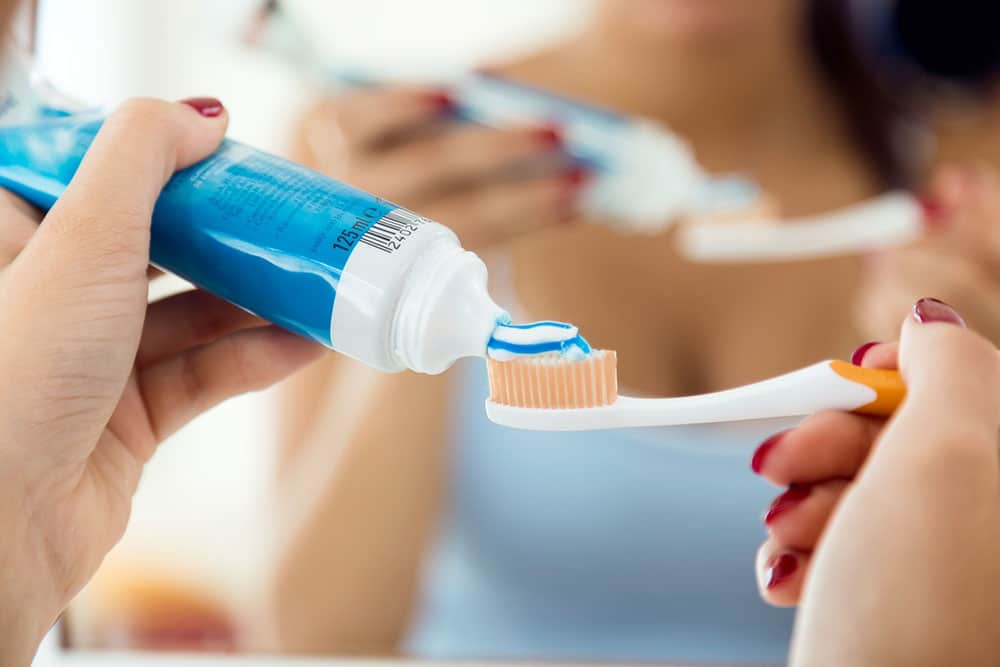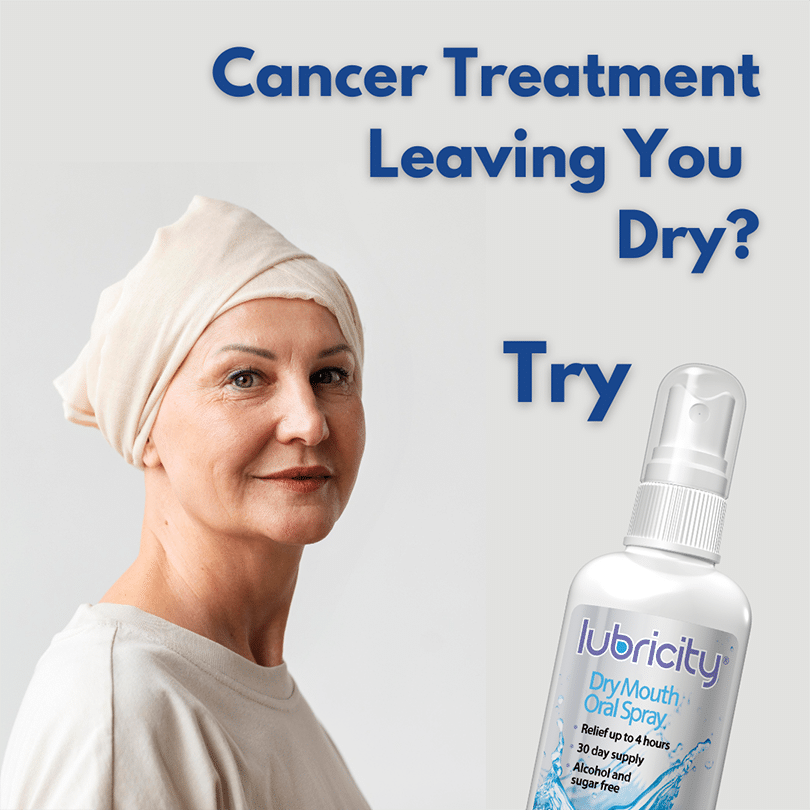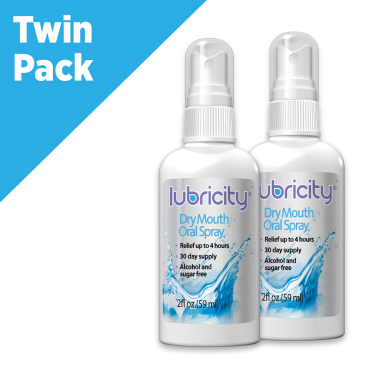Introduction:
A breast cancer diagnosis is life-changing and impacts many aspects of a person’s health and well-being. While the physical and emotional effects of breast cancer are well-documented, the relationship between oral health and breast cancer is often overlooked. This blog will explore how breast cancer treatments can affect oral health, provide practical advice for managing these issues, and introduce solutions like Lubricity Dry Mouth Spray with Hyaluronic Acid that can offer relief.
Understanding the Connection Between Oral Health and Breast Cancer
To understand the oral health and breast cancer connection we must look at its type of treatments. From chemotherapy and radiation to hormonal therapies, the side effects can compromise oral hygiene and overall comfort. Let’s dive into the various ways breast cancer and its treatments can affect oral health.
Oral Health Issues Associated with Breast Cancer
1. Dry Mouth (Xerostomia):
- Cause: Chemotherapy, radiation therapy, and hormonal treatments can decrease saliva production, leading to a persistently dry mouth.
- Symptoms: Symptoms of dry mouth can cause difficulty swallowing, speaking, and tasting food. It may also lead to bad breath and an increased risk of dental decay.
2. Mouth Sores and Ulcers:
- Cause: Chemotherapy and radiation therapy can lead to mucositis, which is inflammation and ulceration of the mucous membranes in the mouth.
- Symptoms: Painful sores and ulcers in the mouth can make eating and speaking uncomfortable.
3. Changes in Taste:
- Cause: Chemotherapy can alter the taste buds, leading to a metallic or altered taste sensation.
- Symptoms: This can affect appetite and the enjoyment of food, which may lead to nutritional deficiencies. Try eating small meals even if you have a loss of appetite.
4 Gum Problems
- Cause: Reduced saliva production and changes in oral hygiene routines can lead to gum issues such as gingivitis and periodontal disease.
- Symptoms: Symptoms include swollen, bleeding, or painful gums.
5. Increased Risk of Oral Infections:
- Cause: A compromised immune system due to cancer treatments can increase susceptibility to oral infections like thrush (oral candidiasis).
- Symptoms: White patches in the mouth, soreness, and discomfort.
6. Jaw Problems:
- Cause: Radiation therapy, especially when aimed at the head and neck area, can cause stiffness and pain in the jaw, a condition known as trismus.
- Symptoms: Difficulty opening the mouth fully, pain, and discomfort.
The Impact of Breast Cancer Treatments on Oral Health
Breast cancer treatment can lead to various side effects, including dry mouth. The types of cancer treatment for breast cancer, such as chemotherapy, radiation therapy, hormonal therapy, and targeted therapy, can have different impacts on the body. Radiation therapy can cause damage to healthy cells in addition to targeting cancer cells, resulting in side effects like dry mouth. It is essential for patients undergoing treatment to be aware of these potential side effects and work closely with their healthcare team to manage them effectively. Understanding how treatment options affect oral health can help in managing and mitigating these issues.
1. Chemotherapy
Chemotherapy drugs target rapidly dividing cancer cells, but they also affect other fast-growing cells in the body, including those in the mouth. This can lead to:
- Dry Mouth: Reduced saliva production.
- Mouth Sores: Ulcerations and inflammation.
- Taste Changes: Altered or metallic taste.
2. Radiation Therapy
Radiation treatment aimed at the head and neck can impact the salivary glands, leading to:
- Severe Dry Mouth: Often a persistent issue even after treatment ends.
- Gum Problems: Increased risk of gingivitis and periodontal disease.
- Trismus: Reduced jaw mobility.
3. Hormonal Therapies
Hormonal treatments, such as aromatase inhibitors, can also impact oral health:
- Dry Mouth: Like chemotherapy, these drugs can reduce saliva production.
- Gum Sensitivity: Hormonal changes can affect gum health.
Breast cancer care involves monitoring and managing various symptoms and side effects, including those affecting oral health, like dry mouth. Communicating such issues promptly to your cancer care team is crucial, as painful mouth symptoms can impact your ability to eat and drink, potentially affecting your overall health and quality of life. It’s important to work closely with your healthcare providers to address any concerns and ensure comprehensive care throughout your breast cancer treatment journey.
Managing Oral Health Issues During Breast Cancer Treatment
Taking proactive steps can help manage and alleviate some of the common oral health issues experienced during breast cancer treatment. Breast cancer treatment can lead to dry mouth, also known as xerostomia, which can increase the risk of tooth decay. With reduced saliva production, harmful bacteria in the mouth can proliferate, leading to various oral health issues such as cavities and gum disease. Maintaining good oral hygiene and staying hydrated can help mitigate the effects of a dry mouth and reduce the risk of tooth decay associated with breast cancer treatment. Here are some practical tips:
1. Maintain Good Oral Hygiene:
- Brush teeth twice daily with a soft-bristled toothbrush.
- Floss daily to remove plaque and food particles.
- Use fluoride toothpaste and mouth rinses designed for sensitive mouths.
2. Stay Hydrated:
- Drink plenty of water throughout the day to help combat dry mouth.
- Avoid alcohol and caffeine, which can worsen dry mouth.
3. Use Saliva Substitutes:
- Over the counter saliva substitutes and mouth moisturizers can provide temporary relief from dry mouth.
4. Avoid Irritants:
- Stay away from spicy, acidic, and salty foods that can irritate mouth sores and ulcers.
5. Regular Dental Visits:
- Schedule regular check-ups with your dentist to monitor and address any oral health issues promptly.
6. Nutritional Support:
- Eat a balanced diet rich in vitamins and minerals to support oral health.
- Consider working with a nutritionist if you have difficulty eating due to mouth sores or changes in taste.
How Lubricity Dry Mouth Spray with Hyaluronic Acid Can Help
The good news is Lubricity Dry Mouth Spray is a specialized product designed to provide relief from the discomfort associated with dry mouth. Dry mouth, also known as xerostomia, can be a side effect of breast cancer treatment. It occurs when the body does not produce enough saliva to keep the mouth moist. This condition can lead to difficulties with speaking, swallowing, and tasting food. Additionally, a dry mouth can increase the risk of developing infections in the mouth. It is essential for individuals experiencing dry mouth to stay hydrated and practice good oral hygiene to prevent further complications. Here’s how it can help:
Benefits of Lubricity Dry Mouth Spray
1. Hydration:
- Hyaluronic Acid: This key ingredient helps to retain moisture in the mouth, providing long-lasting hydration. It creates a protective layer that mimics natural saliva.
2. Comfort:
- Soothing Effect: The spray provides immediate relief from the discomfort of dry mouth, helping to ease the symptoms associated with reduced saliva production.
3. Improved Oral Health:
- Protection: By keeping the mouth moist, Lubricity helps to protect against the risk of oral infections, bad breath, and dental decay.
4. Convenience:
- Ease of Use: The spray is easy to apply and can be used up to 4 times as needed throughout the day for ongoing relief.
Conclusion
Breast cancer treatments can significantly impact oral health, leading to issues such as dry mouth, mouth sores, changes in taste, and increased risk of oral infections. Addressing these issues proactively can help improve quality of life during and after treatment. Utilizing products like Lubricity Dry Mouth Spray with Hyaluronic Acid can provide essential relief and enhance comfort. By maintaining good oral hygiene, staying hydrated, and seeking regular dental care, individuals can better manage the oral health challenges associated with breast cancer.
For those undergoing breast cancer treatment, taking these steps can help mitigate the impact on oral health and contribute to overall well-being. If you have any concerns or need personalized advice, consulting with a healthcare professional or dental specialist is always a good approach.
Frequently Asked Questions (FAQs)
Breast cancer treatments, such as chemotherapy and radiation, can cause nausea, loss of appetite, and changes in taste, which may lead to weight loss. Managing weight during treatment involves eating small, frequent meals, focusing on high-calorie and high-protein foods, and staying hydrated. Consulting a nutritionist or dietitian can help tailor a meal plan to maintain weight and overall health.
It’s crucial to inform your health care team about all side effects, including dry mouth, because they can impact your overall health and quality of life. Your doctor can adjust your treatment plan, suggest supportive therapies, or refer you to specialists to address and manage these side effects effectively. Open communication ensures comprehensive care and helps in mitigating complications.
Dry mouth can lead to several dental issues, including an increased risk of tooth decay, gum disease, and oral infections. The lack of saliva reduces natural protection for teeth and gums, making them more vulnerable to damage. Regular dental check-ups and good oral hygiene practices are essential to manage these risks.
Dry mouth can significantly impact oral health by reducing saliva flow, which is crucial for neutralizing acids, washing away food particles, and protecting against bacteria. This can result in problems like bad breath, tooth decay, and sore or irritated gums. Using saliva substitutes and staying hydrated can help mitigate these effects













